How to take care of contact lenses

Caring for contact lenses is quick and easy as well as extremely important for eye health. Learn about how to take care of contact lenses so you can stay comfortable and reduce your risk of eye irritation and infection. To help you get started, our eye care experts have created a guide with some helpful contact lens care tips.
Take a look at a basic lens care routine, learn about the most common contact solutions and their purposes, and read about some dos and don'ts of proper care below!
Why should you clean your contact lenses?
Regularly cleaning your contact lenses is an essential part of maintaining good eye health. Without a proper cleaning and storage routine, bacteria and other debris can build up on the surface of the lens. This can lead to eye irritation, redness, blurred vision, and even serious infections. There are different reasons you might not see clearly with your lenses, but keeping them clean is an easy way to keep vision sharp.
Unless you wear daily disposable lenses, contact solution is a necessary part of caring for contacts. Remember that the right routine and solution differs from person to person. It's always best to consult your eye care professional and lens manufacturer’s recommendations to understand the proper way to clean your specific contacts.
How to clean and store your contact lenses
It's necessary to have the right contact solution to properly care for your lenses. When in doubt, your eye care professional can point you in the right direction. Follow these five basic steps for cleaning your lenses:
- Wash and dry your hands – Always wash and dry your hands before removing your lenses. This helps remove dirt and bacteria that can cause irritation or infection.
- Fill lens case with solution – Use fresh contact lens solution each time you remove your lenses. Never reuse old solution or mix old solution with fresh.
- Remove first lens and clean – Remove your contact lens and place it in the palm of your hand. Cover the lens with a few drops of solution and rub it gently between your palm and finger to clean the surface.
- Rinse the lens more and store – Rinse the lens with more solution and place it in your contact lens case for storage.
- Repeat for other eye – Remove your second lens and clean it according to steps three and four.
Helpful hint: The cleaning steps are different when using hydrogen peroxide solution. Make sure to follow the manufacturer's instructions carefully.
Remember that contact lens care isn't just about taking care of your lenses. Make sure to properly clean your case too. Only use contact lens solution to clean your case, never water as it can carry harmful bacteria and pathogens.
Check out this brief video about removing contact lenses below to see how it's done.
Dos and don’ts of taking care of contact lenses
Dos
- Do follow a routine
- Do wash and dry your hands before handling your contact lenses
- Do use fresh contact solution every time you remove your contact lenses
- Do remove contact lenses before bathing or swimming
- Do follow your contact lens manufacturer and eye care professional’s recommendations
- Do receive regular eye exams to check your vision and monitor for abnormalities
Don’ts
- Don’t wear contact lenses past their recommended wearing period
- Don’t use contact solution beyond its expiration date
- Don’t use water or saliva to clean lenses
- Don’t wear contact lenses if your eyes become irritated, painful or vision becomes blurred
- Don’t store contact lenses is extreme heat or cold
Want to take care of your contacts?
Discover multi-purpose, hydrogen peroxide, and saline solutions today.
What are the main types of contact lens solutions?
There are three primary types of contact lens solutions that can be used for most soft or rigid gas permeable contacts. Of course, it's a good idea to follow your eye care professional's advice as they'll know what solution to use based on your specific needs. The main solutions are as follows:
- Multi-purpose solutions are all-in-one solutions used for cleaning, disinfecting, and storing lenses. There are a wide range of formulas available that can target things like dry or sensitive eyes and beyond. Multi-purpose solutions are a convenient solution for cleaning monthly contact lenses, bi-weekly, or extended wear lenses.
- Hydrogen peroxide solutions are strong cleaning and disinfecting solutions usually recommended for sensitive eyes. The solution must go through a neutralisation step before lenses can come in contact with the eyes. This requires a longer soaking process than multi-purpose solutions. Always follow the manufacturer's instructions when using hydrogen peroxide solution.
- Saline solutions are balanced solutions used to rinse contact lenses before inserting them into your eyes. Saline solutions are not the same as multi-purpose solutions as they don't contain cleaning or disinfecting agents. Saline shouldn’t be used in place of regular contact solution.
Which contact lenses need to be cleaned?
All reusable contact lenses must be cleaned immediately after removing them from your eyes. Daily disposable lenses are the exception and should be thrown away immediately after one use. Dailies are a great option if you're wondering how to store contact lenses without solution.
In addition to cleaning, there are other differences between monthly and daily lenses to consider. Your eye care professional can recommend lenses that work for your eyes and lifestyle.
Frequently asked questions
What can I do if I don't have contact lens solution?
If you don't have any solution available, removing and disposing of lenses is safer than using makeshift alternatives such as water or homemade saline solutions. Always opt for multipurpose or peroxide solutions that are specifically designed for cleaning, disinfecting, and storing contact lenses.
Carry your glasses or a spare pair of lenses just in case you find yourself without solution. If you’re tired of using solutions altogether, daily disposable contact lenses can be a great alternative. Talk to your eye care professional to learn more about this option.
How often should I change the solution in my lens case?
If you wear contacts that require daily removal and storage, change the solution in your lens case every day to prevent the buildup of bacteria and other microorganisms that can cause infection. Always completely dispose of used solution and use fresh solution to ensure optimal disinfection and cleaning properties.
Planning to store your lenses for an extended period of time? A good rule of thumb is to replace the solution in your case at least once a week while the lenses are being stored. However, remember to always follow the lens manufacturer’s instructions or directions from your eye care professional as recommendations can differ between lenses and individuals.
Can I use eye drops instead of contact solution?
No, eye drops and contact lens solutions are different substances that serve different purposes. While lens wearers often use both, they are not interchangeable. Contact lens solutions are specially formulated to clean and disinfect, while eye drops are commonly used to relieve symptoms such as dry eyes or itching and redness.
Can you clean contact lenses without solution?
Unfortunately, there are no suitable alternatives to contact lens solution. The only way to effectively clean and disinfect your lenses is with solutions from trusted manufacturers. Using water, saliva, or other liquids can introduce harmful bacteria and debris to your lenses and cause irritation or infections.
Closing thoughts from Lentiamo
Properly caring for contact lenses is important for the lenses and your eyes. Lentiamo's Chief Optician Jakub has approved this guide to help you keep your eyes healthy and your vision clear.


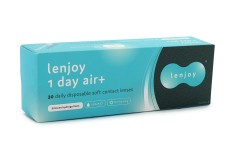
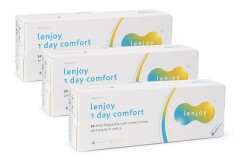
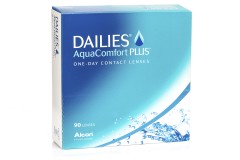
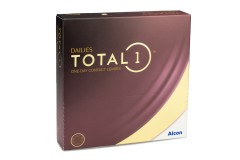
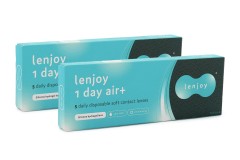
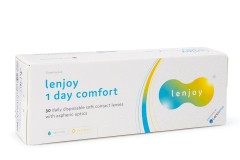
Comments